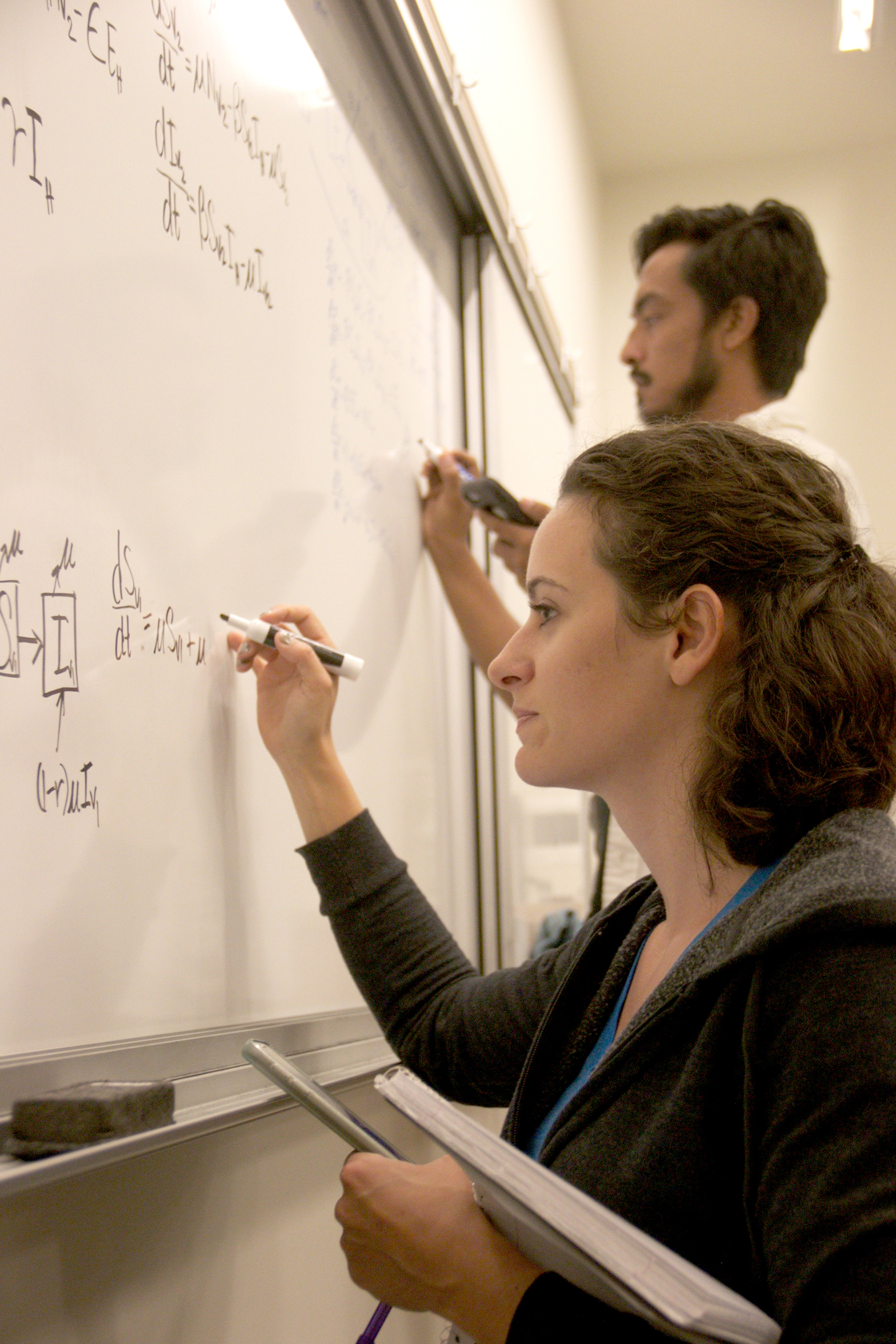
Morgan Dutkoski and Alexander Bautista are participants in the Kikaha Undergraduate Research Program
Research involving pig scavenging behavior, a hypothetical Zika outbreak, and modeling of a dengue outbreak will be discussed this Friday by three UH West Oʻahu students who investigated these issues through the Kikaha Undergraduate Research Program.
Students R. Kalani Carreira, Alexander Bautista, and Morgan Dutkoski are scheduled to present the results of their work between 10:30-11:30 a.m., Sept. 22, in E132.
The trio were part of a 15-student group who were given an opportunity to create projects that developed and enhanced their academic and research skills and were also awarded up to $2,000 in stipends for completion of their projects.
The Kikaha Undergraduate Research Program encourages UH West Oʻahu students to work in Science, Technology, Engineering, and Mathematical (STEM) related fields. In addition to receiving a stipend of $2000, they also have a chance for additional funding to travel to a local or national conference. The project is supported by the National Science Foundation under the Tribal Colleges and Universities Program (TCUP).
The research presentations include:
- “Forensic Taphonomy: The Impact of Pig Scavenging Behavior in Hawaiʻi” by R. Kalani Carreira. The remains of an unidentified decedent were discovered on the surface of a forensic site, necessitating an archaeological recovery on the island of Kauaʻi. This research project provided an opportunity to examine a specific case of scavenging activities, and reconstruct the depositional history within the context of a natural setting.
- “A Mathematical Model for the Potential of a Zika Outbreak in Oʻahu” by Alexander Bautista. The Zika Virus is an arbovirus that is known to cause flu/cold-like symptoms and microcephaly, a birth defect where the primary characteristic is the child being born with a smaller than average head. This study intends to explore the potential ability for an outbreak in the island of Oʻahu
- “A Mathematical Model of the 2015 Dengue Outbreak in Hawaiʻi” by Morgan Dutkoski. In October 2015 to March 2016, there were 264 confirmed cases of dengue on the island of Hawaiʻi. This project focused on modeling dengue on the island of Hawaiʻi with a dual-vector mathematical model.
